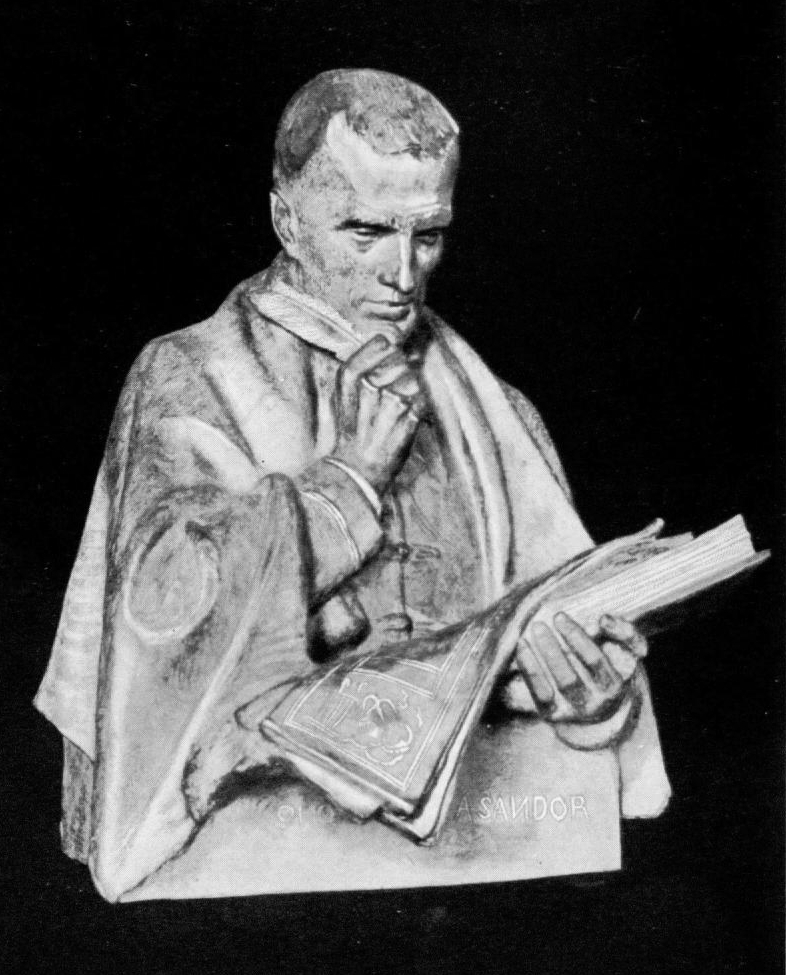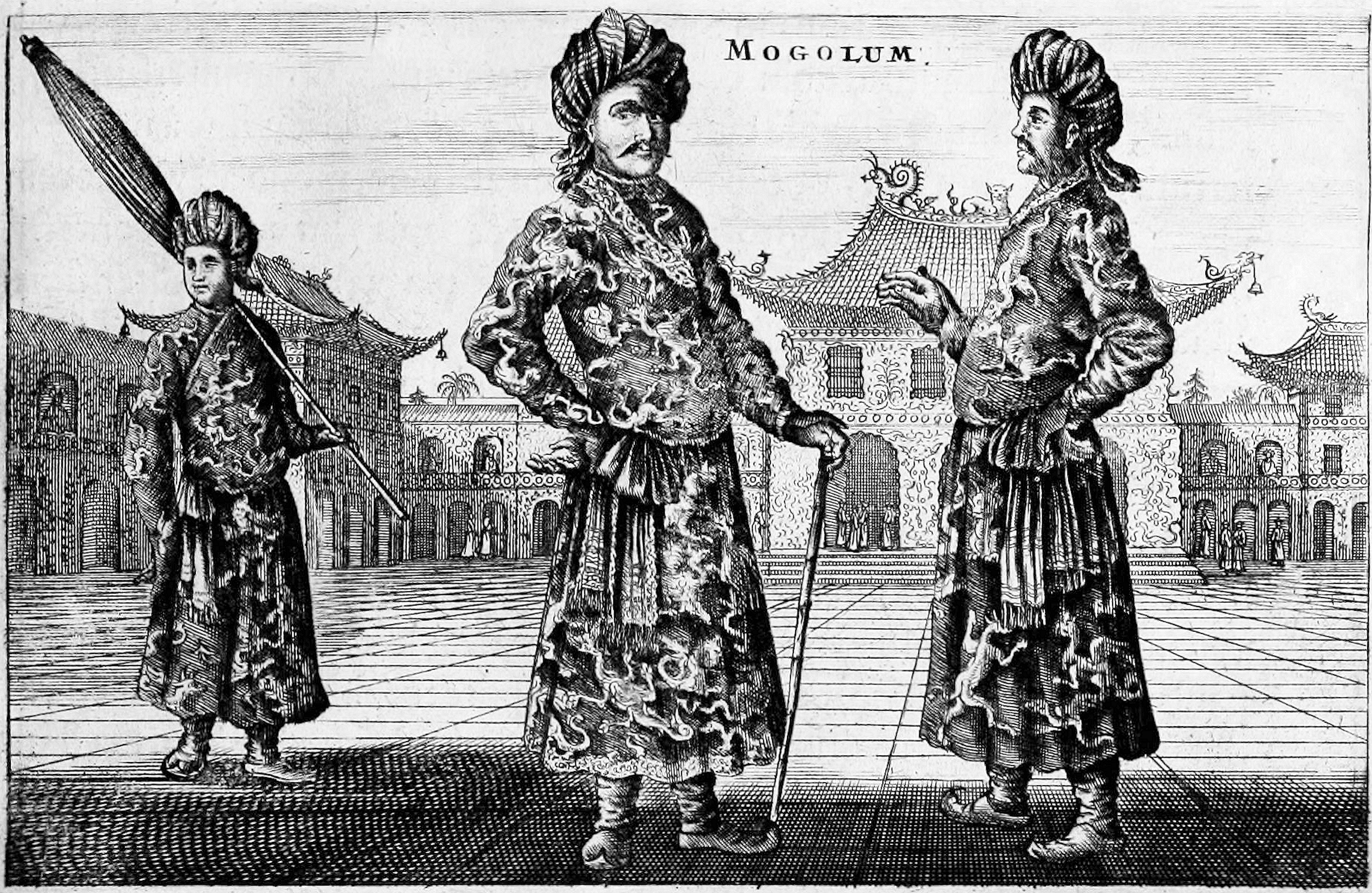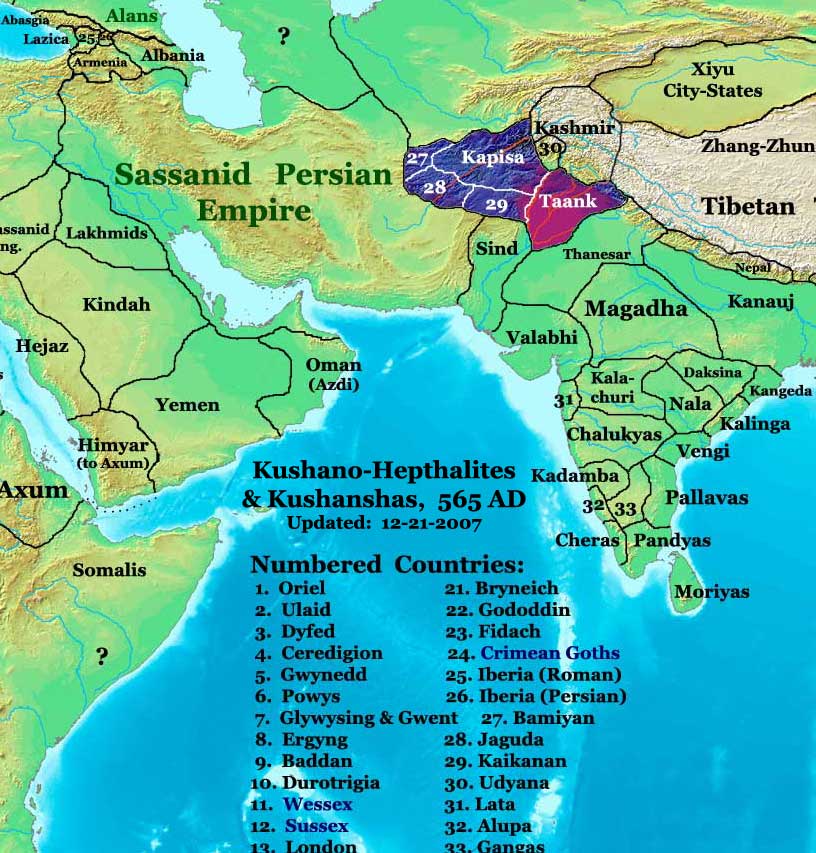|
Tibetologist
Tibetology () refers to the study of things related to Tibet, including its history, religion, language, culture, politics and the collection of Tibetan articles of historical, cultural and religious significance. The last may mean a collection of Tibetan statues, shrines, Buddhist icons and holy scripts, Thangka embroideries, paintings and tapestries, jewellery, masks and other objects of fine Tibetan art and craftsmanship. History *The Jesuit Antonio de Andrade (1580–1634) and a few others established a small mission and church in Tsaparang (1626), in the kingdom of Guge (Western Tibet) in the 17th century. When the kingdom was overrun by the king of Ladakh (1631), the mission was destroyed. *A century later another Jesuit, the Italian Ippolito Desideri (1684–1733) was sent to Tibet and received permission to stay in Lhasa where he spent 5 years (1716–1721) living in a Tibetan monastery, studying the language, the religion of the lamas and other Tibetan customs. He publis ... [...More Info...] [...Related Items...] OR: [Wikipedia] [Google] [Baidu] |
David Snellgrove
David Llewellyn Snellgrove, FBA (29 June 192025 March 2016) was a British Tibetologist noted for his pioneering work on Buddhism in Tibet as well as his many travelogues. Biography Snellgrove was born in Portsmouth, Hampshire, and educated at Christ's Hospital near Horsham in West Sussex. He went on to study German and French at Southampton University. In 1941 he was called up to do his military service as a member of the Royal Engineers. He attended the Officers Cadet Training Unit in the Scottish seaside town of Dunbar, and was commissioned as an infantry officer. Thereafter he attended various intelligence courses and further training at the War Office in London, from where he requested a posting to India. Snellgrove arrived in Bombay in June 1943, and travelled cross-country to Calcutta. He was stationed at Barrackpore, some way up the Hooghly River. A few months after beginning his posting he contracted malaria and was sent to the military hospital at Lebong, just n ... [...More Info...] [...Related Items...] OR: [Wikipedia] [Google] [Baidu] |
Tibet
Tibet (; ''Böd''; ) is a region in East Asia, covering much of the Tibetan Plateau and spanning about . It is the traditional homeland of the Tibetan people. Also resident on the plateau are some other ethnic groups such as Monpa, Tamang, Qiang, Sherpa and Lhoba peoples and now also considerable numbers of Han Chinese and Hui settlers. Since 1951, the entire plateau has been under the administration of the People's Republic of China, a major portion in the Tibet Autonomous Region, and other portions in the Qinghai and Sichuan provinces. Tibet is the highest region on Earth, with an average elevation of . Located in the Himalayas, the highest elevation in Tibet is Mount Everest, Earth's highest mountain, rising 8,848.86 m (29,032 ft) above sea level. The Tibetan Empire emerged in the 7th century. At its height in the 9th century, the Tibetan Empire extended far beyond the Tibetan Plateau, from Central Asian's Tarim Basin and the Pamirs in the west to Yunnan ... [...More Info...] [...Related Items...] OR: [Wikipedia] [Google] [Baidu] |
Sándor Kőrösi Csoma
Sándor Csoma de Kőrös (; born Sándor Csoma; 27 March 1784/811 April 1842) was a Hungarian philologist and Orientalist, author of the first Tibetan–English dictionary and grammar book. He was called Phyi-glin-gi-grwa-pa in Tibetan, meaning "''the foreign pupil''", and was declared a ''bosatsu'' or bodhisattva by the Japanese in 1933. He was born in Kőrös, Grand Principality of Transylvania (today part of Covasna, Romania). His birth date is often given as 4 April, although this is actually his baptism day and the year of his birth is debated by some authors who put it at 1787 or 1788 rather than 1784. The Magyar ethnic group, the Székelys, to which he belonged believed that they were derived from a branch of Attila's Huns who had settled in Transylvania in the fifth century. Hoping to study the claim and to find the place of origin of the Székelys and the Magyars by studying language kinship, he set off to Asia in 1820 and spent his lifetime studying the Tibetan langua ... [...More Info...] [...Related Items...] OR: [Wikipedia] [Google] [Baidu] |
Giuseppe Tucci
Giuseppe Tucci (; 5 June 1894 – 5 April 1984) was an Italian orientalist, Indologist and scholar of East Asian studies, specializing in Tibetan culture and the history of Buddhism. During its zenith, Tucci was a supporter of Italian fascism, and he used idealized portrayals of Asian traditions to support Italian ideological campaigns. Tucci was fluent in several European languages, Sanskrit, Bengali, Pali, Prakrit, Chinese and Tibetan and he taught at the University of Rome La Sapienza until his death. He is considered one of the founders of the field of Buddhist Studies. Life and work Education and background He was born to a middle-class Italian family (from Apulia) in Macerata, Marche, and thrived academically. He taught himself Hebrew, Chinese and Sanskrit before even going to university and in 1911, aged only 18, he published a collection of Latin inscriptions in the prestigious '' Zeitschrift des Deutschen Archäologischen Instituts''. He completed his studies ... [...More Info...] [...Related Items...] OR: [Wikipedia] [Google] [Baidu] |
Frederick William Thomas (philologist)
Frederick William Thomas (21 March 1867 – 6 May 1956), usually cited as F. W. Thomas, was an English Indologist and Tibetologist. Life Thomas was born on 21 March 1867 in Tamworth, Staffordshire. After schooling at King Edward's School, Birmingham, he went up to Trinity College, Cambridge in 1885, graduating with a first class degree in both classics and Indian languages and being awarded a Browne medal in both 1888 and 1889. At Cambridge he studied Sanskrit under the influential Orientalist Edward Byles Cowell. He was a librarian at the India Office Library (now subsumed into the British Library) between 1898 and 1927. Simultaneously he was lecturer in comparative philology at University College, London from 1908 to 1935, Reader in Tibetan at London University from 1909 to 1937 and the Boden Professor of Sanskrit at Oxford University between 1927 and 1937, in which capacity he became a fellow of Balliol College. His students at Oxford included Harold Walter Bailey. Tho ... [...More Info...] [...Related Items...] OR: [Wikipedia] [Google] [Baidu] |
Charles Alfred Bell
Sir Charles Alfred Bell (October 31, 1870 – March 8, 1945) was the British Political Officer for Bhutan, Sikkim and Tibet. He was known as "British India's ambassador to Tibet" before retiring and becoming a noted tibetologist. Biography He was educated at Winchester College, and then at New College, Oxford, after which he joined the Indian Civil Service in 1891. In 1908, he was appointed Political Officer in Sikkim. He soon became very influential in Sikkimese and Bhutanese politics, and in 1910 he met the 13th Dalai Lama, who had been forced into temporary exile by the Chinese. He got to know him quite well, and later wrote his biography (''Portrait of the Dalai Lama'', published in 1946). In 1913 he participated in the Simla Convention, a treaty between Great Britain, China and Tibet concerning the status of Tibet. Before the summit, he met in Gyantse with Paljor Dorje Shatra, the Tibetan representative to the British Raj at Darjeeling and advised him to bring to Si ... [...More Info...] [...Related Items...] OR: [Wikipedia] [Google] [Baidu] |
Jacques Bacot
Jacques Bacot (4 July 1877 – 18 June 1965) was an explorer and pioneering French Tibetologist. He travelled extensively in India, western China, and the Tibetan border regions. He worked at the École pratique des hautes études. Bacot was the first western scholar to study the Tibetan grammatical tradition, and along with F. W. Thomas (1867–1956) belonged to the first generation of scholars to study the Old Tibetan Dunhuang manuscripts. Bacot made frequent use of Tibetan informants. He acquired aid from Gendün Chöphel in studying Dunhuang manuscripts. Biography The Tibetological career of Jacques Bacot began from a round the world trip which he made in 1904 and from an expedition to Tibet in 1906, starting from Tonkin, in the course of which he followed a pilgrimage route which must have put him in intimate contact with the religious life of Tibet. After his return to France in 1908, he devoted himself to the study of Tibetan with Sylvain Lévi. Jacques Bacot explor ... [...More Info...] [...Related Items...] OR: [Wikipedia] [Google] [Baidu] |
Philippe Édouard Foucaux
Philippe Édouard Foucaux (15 September 1811 – 20 May 1894) was a French tibetologist. He published the first Tibetan grammar in French and occupied the first chair of Tibetan Studies in Europe. He was born in the town of Angers on 15 September to merchant family. At the age of 27, he left for Paris to study Indology with Eugène Burnouf. After becoming aware of the work of Sándor Kőrösi Csoma, he studied Tibetan by himself for two years. After this he was appointed as a Tibetan teacher at the École des langues orientales where he gave his inaugural lecture on January 31, 1842. Funding for the position was canceled but Foucaux continued to instruct his students thereafter on a pro bono basis. Some of his most well-known students include , William Woodville Rockhill, and Alexandra David-Néel. Foucaux was a member of the Sociéte d'Ethnographie. After France became the Second Empire, Foucaux was elected as a member of the Collège de France. Foucaux was married to Mary S ... [...More Info...] [...Related Items...] OR: [Wikipedia] [Google] [Baidu] |
Luciano Petech
Luciano Petech (8 June 1914, Trieste – 29 September 2010, Rome) was an Italian scholar of Himalayan history and the early relations between Tibet, Nepal and Italy. He was Chair of History of Eastern Asia at the University of Rome from 1955 to 1984. He was a student of the Italian explorer, academic, and scholar Giuseppe Tucci. Luciano Petech was born in 1914 and retired in 1984. He learned several European languages, including Latin, as well as Asian languages such as Tibetan, Chinese, Japanese, Newari, Sanskrit, Arabic, Hindi and Urdu. Biography Petech began his teaching career in India at 25 years old, as a reader in Italian at the University of Allahabad from 1938 to 1946. His first recorded article is for the '' Calcutta Review'' in 1939. His subject was the dramas and stories of the great Italian author Luigi Pirandello, who had recently died two years after being awarded the Nobel Prize in Literature. He says “the people” in Italy had unfairly turned their backs ... [...More Info...] [...Related Items...] OR: [Wikipedia] [Google] [Baidu] |
Guge
Guge (; ) was an ancient dynastic kingdom in Western Tibet. The kingdom was centered in present-day Zanda County, Ngari Prefecture, Tibet Autonomous Region. At various points in history after the 10th century AD, the kingdom held sway over a vast area including south-eastern Zanskar, Upper Kinnaur district, and Spiti Valley, either by conquest or as tributaries. The ruins of the former capital of the Guge kingdom are located at Tsaparang in the Sutlej valley, not far from Mount Kailash and westwards from Lhasa. History Founding Guge was founded in the 10th century. Its capitals were located at Tholing and Tsaparang. Kyide Nyimagon, a great-grandson of Langdarma, the last monarch of the Tibetan Empire, fled from the insecure conditions in Ü-Tsang in 910 to arrive in Ngari (West Tibet). He established a kingdom around 912, annexing Purang and Guge. He established his capital in Guge. Nyimagon later divided his lands into three parts. The king's eldest son Palgyigo ... [...More Info...] [...Related Items...] OR: [Wikipedia] [Google] [Baidu] |
Ladakh
Ladakh () is a region administered by India as a union territory which constitutes a part of the larger Kashmir region and has been the subject of dispute between India, Pakistan, and China since 1947. (subscription required) Quote: "Jammu and Kashmir, state of India, located in the northern part of the Indian subcontinent in the vicinity of the Karakoram and westernmost Himalayan mountain ranges. From 1947 to 2019, Ladakh was part of the Indian state of Jammu and Kashmir, which has been the subject of dispute between India, Pakistan, and China since the partition of the subcontinent in 1947." Quote: "Jammu and Kashmir: Territory in northwestern India, subject to a dispute between India and Pakistan. It has borders with Pakistan and China." Ladakh is bordered by the Tibet Autonomous Region to the east, the Indian state of Himachal Pradesh to the south, both the Indian-administered union territory of Jammu and Kashmir and the Pakistan-administered Gilgit-Baltistan to the ... [...More Info...] [...Related Items...] OR: [Wikipedia] [Google] [Baidu] |
Richard Keith Sprigg
Richard Keith Sprigg (31 March 1922 – 8 September 2011) was a British linguist who specialised in the phonology of Asian languages. Sprigg was educated under J. R. Firth and was a member of the first generation of professional British linguists. Also as a consequence Sprigg was an advocate of the prosodic phonological method of Firth. Sprigg worked on several Tibeto-Burman languages including Lepcha, and various Tibetan dialects. He taught for many years at the School of Oriental and African Studies, and retired to Kalimpong, West Bengal, India with his wife Ray, granddaughter of David Macdonald the author of ''The Land of the Lama'' and ''20 Years in Tibet'', until her death. In 2000 he returned to UK and lived in retirement with his second wife Elisabeth in Crowborough, East Sussex, England. Works *Sprigg, Richard Keith (1950). "Hunting the things they say." ''Himalayan Times'', Kalimpong. *Sprigg, Richard Keith (1954).Verbal Phrases in Lhasa Tibetan I"''Bulletin of the Sc ... [...More Info...] [...Related Items...] OR: [Wikipedia] [Google] [Baidu] |






